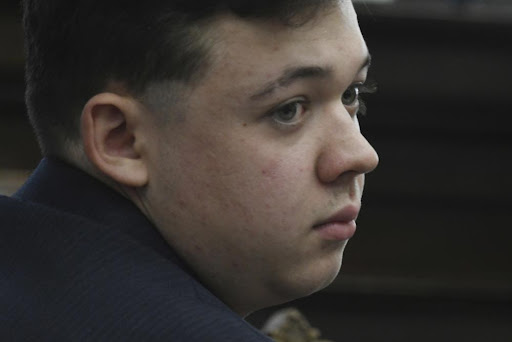By Greg Calhoun
Carroll University student volunteers Martha Hernandez (l) and Natali Jankovic demonstrate the Optos camera used to take retinal images that are screened for diabetic retinopathy.For patients, a diagnosis of diabetic retinopathy can begin with a trip to the doctor due to distorted vision. Retina specialists such as Judy E. Kim, MD, GME ’96, professor of ophthalmology at the Medical College of Wisconsin and the MCW Eye Institute, know that the disease has been gradually changing small blood vessels in the eye long before these symptoms occur.
“Left untreated, bleeding and possible retinal detachment from abnormal blood vessel growth and fluid leakage from damaged vessels can lead to permanent blindness,” Dr. Kim says.
Experts recommend regular, comprehensive eye exams to catch diseases such as diabetic retinopathy as early as possible to prevent or delay further damage and vision loss. A lack of awareness of the link between diabetes and eye health can be a barrier to seeking screening services, as can challenges accessing appropriate medical services due to concerns such as insurance coverage (or lack thereof), language and transportation.
“There is a huge need for diabetes research and services in our community,” says Militza Bonet-Vasquez, health research coordinator for the United Community Center in Milwaukee, WI, which provides a wide range of social services to the families – a majority of which are Latino – living on the city’s south side.
After conducting a community needs assessment, Dr. Kim and Bonet-Vasquez, along with team members at the United Community Center and the Froedtert & MCW Eye Institute, saw an opportunity to use distance-based medicine as a strategy to provide both eye health screening and education about diabetes and its connection to vision loss.
“We all understood the obstacles to bringing our community members to the clinic to conduct screenings,” Bonet-Vasquez explains. “So our idea instead was to bring the screenings into the community.”
Partners from the United Community Center, MCW and Marquette University gather on May 16, 2016, at the United Community Center to share the outcomes of their eye health screening project with community members.The partnership added Sheik Iqbal Ahamed, PhD, professor of mathematics, statistics and computer science at Marquette University, who, along with his students, brought the expertise needed to securely transfer health information among institutions. With the community, medical and data infrastructure knowledge and experience in place, the partners received a $200,000 award in January 2014 from the Advancing a Healthier Wisconsin Endowment at MCW.
The team moved forward, installing a retinal imaging camera in the United Community Center that was borrowed from Optos, a medical device manufacturer in Scotland. The device was able to deliver the quality scans that Dr. Kim required without the need to dilate the eye – a decision made to respond to community concerns about dilation that had been discovered during the needs assessment. Project staff were trained to operate the camera, as were volunteers from Carroll University (a long-term United Community Center partner and the alma mater of United Community Center executive director and MCW trustee Ricardo Diaz). Then, it was time to invite community members to participate. After each scan was completed, the files were uploaded to a private online database so that Dr. Kim could remotely review the images and provide recommendations.
“While we knew the need was there, we were thrilled to see the acceptance and interest the community had in the technology,” Bonet-Vasquez notes. More than 400 individuals were screened, and four were identified as being in critical need of intervention to prevent future blindness due to diabetic retinopathy.
“The results demonstrate the feasibility of a distance-based approach to preventing vision loss through early detection that will allow for a timely treatment,” Dr. Kim adds.
“Our next step is testing the use of a mobile camera that can be taken to health fairs and other community events,” Bonet-Vasquez shares. “This is the next evolution for us.” The Clinical and Translational Science Institute of Southeastern Wisconsin awarded a $50,000 pilot grant to Dr. Kim and the team in May 2016 to further support their work.
“Our community is ready to be healthier and truly embraced this project,” Bonet-Vasquez observes. “What we’ve learned can be applied elsewhere to improve early disease detection, increase access to care and reduce the cost of medical care through distance-based medicine,” Dr, Kim states.
The MCW Eye Institute’s Velinka Medić, MS, (l) and Dr. Judy Kim served as academic partners with the United Community Center and Marquette University to screen more than 400 individuals for diabetic retinopathy, a disease which can lead to permanent blindness if left untreated.
While flipping the script on where and how people are screened for diabetic retinopathy, and demonstrating how distance-based medicine can improve health in communities, Bonet-Vasquez, Dr. Kim and their partners have helped Milwaukeeans take steps to preserve their eyesight and see clearly the possibility of a healthier future.
Thinking “Outside the Clinic”








